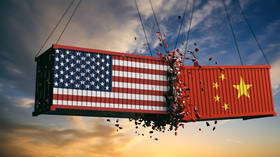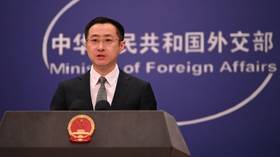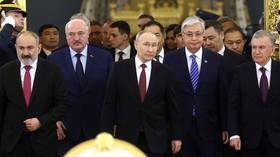US slaps steep tariffs on China

The US rolled out steep tariffs on Chinese products on Tuesday, quadrupling duties on electric vehicles (EVs) to over 100% and imposing new levies on computer chips, solar cells and lithium-ion batteries. The White House says the new measures are intended to “protect American workers and businesses.”
The tariffs will affect $18 billion of Chinese imported goods, including steel and aluminum, semiconductors, batteries, critical minerals, solar cells and cranes.
Biden administration officials claim the measures have come in response to years of “unfair trade practices” by China, including forced technology transfers, intellectual property violations, and cyberhacking of American businesses.
“China’s using the same playbook it has before to power its own growth at the expense of others by continuing to invest, despite excess Chinese capacity and flooding global markets with exports that are underpriced due to unfair practices,” White House National Economic Adviser Lael Brainard told reporters.
The revised tariffs are justified, according to US Trade Representative Katherine Tai, who has accused China of stealing US intellectual property and claimed that in some cases Beijing had become “more aggressive” with cyber intrusions targeting American technology.
She said prior ‘Section 301’ tariffs had been effective in reducing US imports of Chinese goods, while increasing imports from other countries. According to the US Census Bureau, the country imported $427 billion in goods from China in 2023 and exported $148 billion.
US officials have repeatedly labeled China as America’s top “competitor,” while tightening economic restrictions against the country. Tariffs on Chinese goods were hiked significantly under former President Donald Trump, who launched the first volley in a tit-for-tat trade war that began in 2018. A similarly hostile approach has continued under his successor, Joe Biden, who has adopted several policies aimed at the Chinese economy.
Beijing has warned that such measures violate the principles of fair competition, and harm the stability of world trade.
Growing US-China trade tensions are threatening the overall global economic growth, the International Monetary Fund warned last week.













